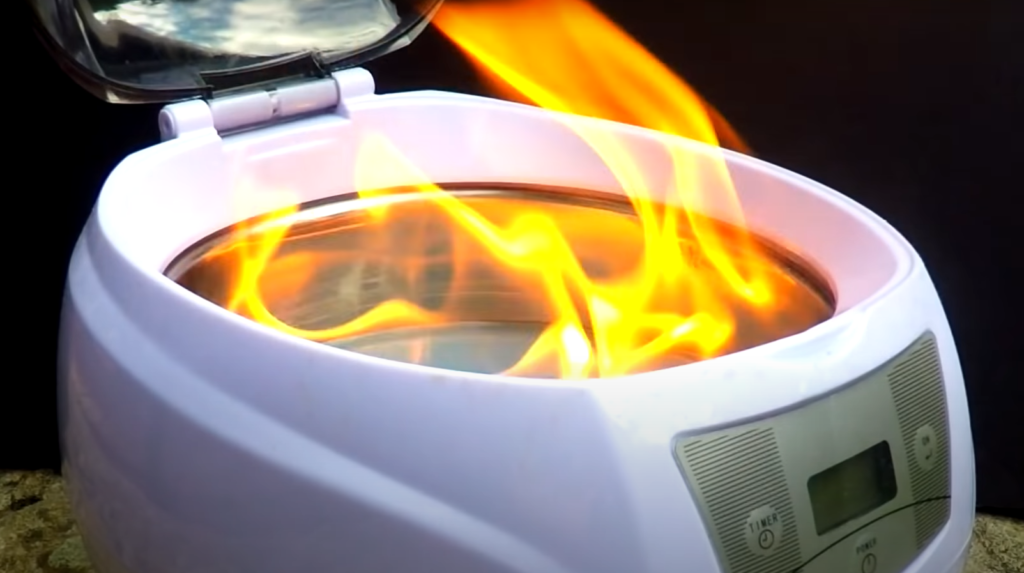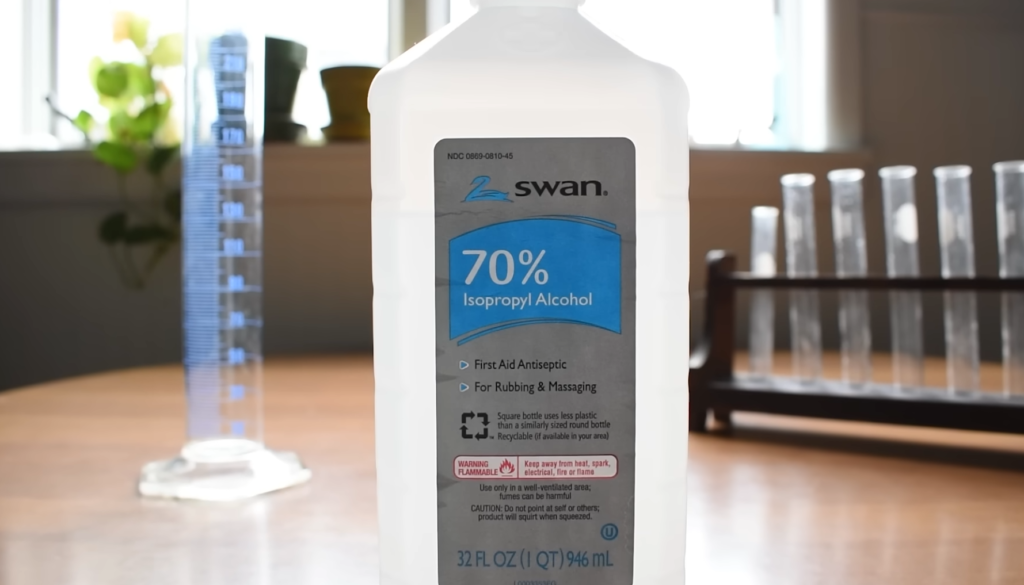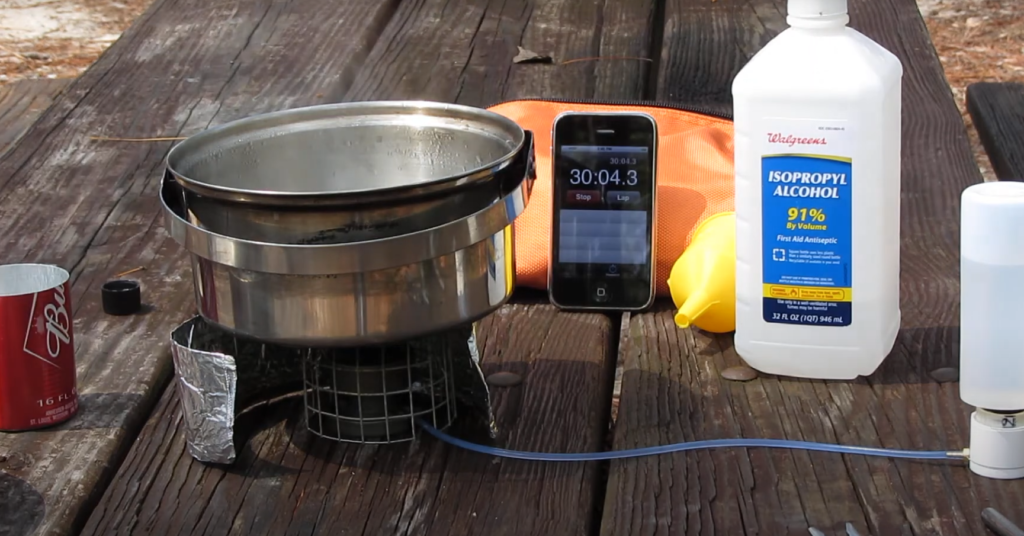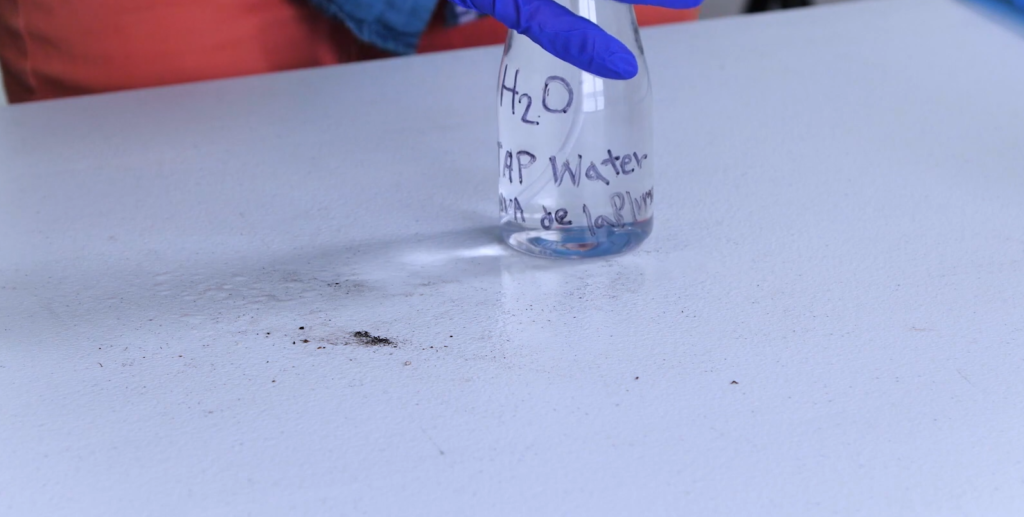Isopropyl alcohol (IPA) is a common chemical, used in many home and industrial applications. And if you have ever wondered if isopropyl alcohol is a conductor, you are not alone. As it turns out, the answer to that question can be difficult to discern. To help demystify the conductive capabilities of isopropyl alcohol, we have crafted this comprehensive guide where we will cover the basics and dive deep into our findings on whether this chemical compound can be used as a conductor. Let’s begin by understanding what isopropyl alcohol is and its properties!
Conductors in General
Conductors are the medium through which electricity passes, allowing for power to be transmitted across a wide range of applications. The materials used to form the conductor can vary from metal, such as copper and aluminum, to various types of material such as plastics and glass.

To construct an effective conductor that is suitable for carrying large amounts of current, many different materials are often combined together in order to create the most efficient product. While metals like copper and aluminum tend to provide high conduction efficiency typically, they also tend to corrode easily when exposed to other elements. To prevent this, conductors are often insulated or covered with a protective layer to protect them against any corrosive elements that may be present in the environment.
Conductors come in many shapes and sizes, depending on their purpose and use. For example, some types of conductor are designed to carry high current loads while others are used to carry low current loads. The type of conductor chosen will depend on the specific requirements needed for its application. Some common applications include electrical wiring, power transmission lines, and other industrial uses.
No matter what the application may be, it is important for conductors to be properly installed and maintained according to manufacturer specifications in order to ensure maximum efficiency and safety during operation. Regular inspection of all conductors should be conducted to ensure they are in proper working condition and that no damage or corrosion has occurred. This can help to prevent any potential risks associated with electrical current and the equipment it is used to power. [1]
Isopropyl Alcohol in General
Isopropyl alcohol, also known as rubbing alcohol, is an industrial solvent used in various products and processes, including antiseptics, medications, and cleaning agents. It has a broad range of uses both medically and industrially due to its high solubility in water and other organic compounds. Isopropyl alcohol is a colorless liquid with a strong odor that evaporates quickly when exposed to air.
The primary use for isopropyl alcohol is as a disinfectant or antimicrobial agent. It can be applied directly to skin or surfaces to kill bacteria and fungi that cause infection or disease. Isopropyl alcohol can also be used as an antiseptic mouthwash or gargle solution for minor mouth or throat irritations. It is also commonly used to clean medical instruments and surfaces in healthcare settings.
In addition to its use as a disinfectant, isopropyl alcohol has numerous industrial applications. It can be used as a cleaner and degreaser for equipment and machinery, and it can also be added to paints and coatings to improve their drying time. Isopropyl alcohol can also act as a solvent in processes such as oil extraction, extraction of flavors and fragrances, rubber cement manufacturing, printing ink production, resins manufacturing, plastics manufacture, and dyeing processes. [2]

Is Isopropyl Alcohol Conductive
Isopropyl alcohol is a polar solvent, which means it can form hydrogen bonds with water molecules. This makes it non-conductive in pure form. When isopropyl alcohol is mixed with other substances such as salts or acids, however, the resulting solution can become conductive. For example, when salt is dissolved into a solution of isopropyl alcohol, the salt molecules will break up into ions, which can carry electrical current. Similarly, when acid is added to isopropyl alcohol, the acid molecules will ionize and create a conductive solution. In conclusion, isopropyl alcohol itself is not conductive, but it can become conductive when combined with other substances.
This is of course if the IPA is in its pure form. If the IPA is contaminated with water then it will certainly be more conductive as water is an excellent conductor of electricity. In general, most liquids are not considered to be good electrical conductors due to their low electrical resistivity compared to solids. However, when certain substances such as salts, acids and other polar molecules are dissolved in them, their electrical resistivity can decrease considerably and this could lead to a conductive solution. Therefore, it is possible for IPA to be conductive if it is mixed with the right substances and if the concentration of those substances is high enough. [2]
Is Alcohol a Conductor of Electricity
No, alcohol usually is not a conductor of electricity. Alcohols are non-polar molecules and do not possess the properties necessary for them to conduct electricity. In the case of isopropyl alcohol, the molecules are composed of two hydrogens and one oxygen atom. These atoms are not strongly attracted to each other and therefore do not transfer well any electrical current.
However, when mixed with water or even another liquid that contains ions (such as saltwater), it can become a conductor because of the presence of these particles. In fact, alcohols such as ethanol have been used in place of water in some electroplating processes due to their increased conductivity.

Still, because of its low conductivity, IPA is often used in cleaning electronics and other electrical parts as its non-conductive properties make it safe to use around sensitive components. It can also be used to remove dust, oil and other contaminants which could otherwise interfere with the conductivity of electrical contacts. [2]
Which Alcohol is Electrically Conducting
It has a higher molecular weight than some other common forms of alcohol due to the presence of an extra oxygen atom. This additional oxygen atom causes ethanol to be much more polar (attracted to both positive and negative charges) than other forms of alcohol, allowing it to conduct electricity.
However, even with its increased polarity, ethanol still has a relatively low conductivity compared to other materials such as metals or salts. Therefore, while it may be suitable for some applications where electrical conductivity is required (such as electroplating), it would not typically be used in more demanding applications such as power.
It is important to note that while ethanol may be the most electrically conducting form of alcohol, it is still not a particularly good conductor when compared to other materials such as metals or salts. Therefore, it should generally only be used in applications where electrical conductivity is not the primary requirement. In any situation where electrical current needs to flow reliably and safely for long periods of time, other more suitable materials would typically be used instead. [2]

Safety Tips for Using Isopropyl Alcohol
When using isopropyl alcohol, safety should always be a priority. While it’s not an electrical conductor, it can be highly flammable and should be treated with caution. In this section, we’ll discuss some of the most important safety tips to keep in mind when working with IPA.
Avoid direct skin contact
One of the most important safety tips to keep in mind is to avoid direct skin contact with IPA. While it’s not a conductor, if left on the skin for too long it can cause irritation and even chemical burns. Therefore, it’s important to use protective gear such as gloves and safety glasses when handling this substance.
Eyes should be washed with running water for at least 15 minutes if contact with IPA occurs, and any clothing or skin which has been exposed to it should be rinsed off with plenty of water.
Don’t use it near open flames
Due to its highly flammable nature, IPA should never be used near open flames or any other source of ignition. Additionally, it should be stored in a cool, dry place away from anything that can spark or cause a fire.
Use protective equipment
When using isopropyl alcohol in any capacity, it’s important to wear the proper protective gear. This may include safety glasses and gloves, depending on the situation. Additionally, good ventilation is always necessary when working with chemical solvents such as IPA.
Store in a safe place
When storing isopropyl alcohol, you should always make sure it’s kept in a cool, dry area away from direct sunlight. It should also not be stored near any sources of ignition such as stoves or heaters as this could result in a fire hazard.
If any spilled IPA is left unattended, the vapors can accumulate and create an explosive environment which can easily ignite. Therefore, it’s important to store the substance away from any areas where there may be sparks or flames.
Keep an eye on your condition
Finally, it’s important to keep an eye on your condition when working with IPA. If you start feeling dizzy or nauseous, move away from the area and get some fresh air immediately. Inhaling high concentrations of IPA can be dangerous, so always make sure to use it in a well-ventilated space.
Keeping these safety tips in mind whenever you’re working with isopropyl alcohol will help ensure that you stay safe while also getting your job done properly. With this knowledge, you’ll be better prepared to decide whether isopropyl alcohol is a conductor or not and how best to use it for your particular needs. [3]

FAQ
Can I use 91% IPA to clean electronics?
Yes, 91% isopropyl alcohol (IPA) can be used to clean electronics. It is a highly effective cleaning agent that will remove dirt, dust, and debris from sensitive electronic components without damaging the delicate materials. IPA is also non-conductive, meaning it will not cause any damage by creating an electrical current when applied directly to circuitry or other electrical elements.
When cleaning electronics with IPA, it’s important to dilute the solution so that it doesn’t cause harm to the equipment. Mixing one part of IPA with one part of distilled water creates an effective solution for cleaning and won’t leave behind any residue that could interfere with the performance of your device.
Is isopropyl alcohol flammable?
Yes, isopropyl alcohol is flammable. Due to its low flash point, it can easily ignite when exposed to an open flame or spark. When used in a closed space, it creates toxic fumes that can be dangerous if inhaled.’s important to handle and isopropyl alcohol safely responsibly.
When using isopropyl alcohol as a cleaning agent, the best practice is to use small amounts in a well-ventilated area. Additionally, any open flames should not come into contact with the alcohol at any time during use.
Is 70% isopropyl alcohol conductive?
Yes, 70% isopropyl alcohol is a conductor. It has the ability to conduct electricity because it contains molecules with free electrons that are able to move through the solution. This makes the molecules in isopropyl alcohol more ‘conductive’ than those of other types of liquids, such as water or oil.
When using 70% isopropyl alcohol as a solvent for electrical components, you should be aware that it can cause corrosion if left on a surface too long. For this reason, it’s important to follow safety protocols when working with isopropyl alcohol and ensure that all areas have been thoroughly rinsed after use. Additionally, be sure to wear protective gear such as goggles and gloves, as isopropyl alcohol can also be dangerous if it comes into contact with skin or eyes.
Does isopropyl alcohol damage electronics?
No, isopropyl alcohol does not typically damage electronics when used in the appropriate concentration. Isopropyl alcohol can be safely used to clean the exterior surfaces of most electronic components, such as keyboards and other peripherals. However, it’s important to remember that isopropyl alcohol should never be sprayed directly onto any electronics as this could cause moisture damage or cause a short circuit. It’s best to use a cloth dampened with a small amount of isopropyl alcohol instead. Additionally, it’s more effective to use pure isopropyl alcohol (99-100% concentrations) versus lower quality solutions.
Is 90% isopropyl alcohol safe for electronics?
Yes, 90% isopropyl alcohol can be used safely on electronics like circuit boards and electronic components. However, to ensure that the delicate parts are not damaged, the alcohol must be completely dry before any power is applied. Additionally, it’s important to note that while isopropyl alcohol is a good electrical insulator at lower concentrations (under 70%), higher concentrations of 90-99% can cause damage due to conduction if left wet on sensitive parts.
Is 99% isopropyl alcohol safe for electronics?
Yes, 99% isopropyl alcohol can be safely used for electronics. This type of isopropyl alcohol has little to no water content, which helps reduce the risk of corrosion on sensitive electronic components such as PCBs (printed circuit boards) and ICs (integrated circuits). It also evaporates quickly, leaving behind no residue that could cause further damage.
Another benefit of using 99% isopropyl alcohol is that it’s non-conductive. While it won’t conduct electricity like other liquids such as salt water or alkaline solutions, it still has excellent cleaning properties and works well for cleaning delicate electronic parts and components. To ensure maximum safety when working with electronics, always use a lint-free cloth or cotton swab to apply the isopropyl alcohol, and ensure that it doesn’t come into direct contact with any exposed electrical contacts.
When using 99% isopropyl alcohol on electronic components, keep in mind that it should not be used as a substitute for more specialized products such as PCB cleaner or DeoxIT. Specialized cleaners are designed specifically for removing oxidation from electronics and should always be used according to the manufacturer’s instructions.
In summary, 99% isopropyl alcohol can be safely used on electronic components and devices, but specialized cleaners may offer better results when dealing with corrosion and oxidation.
Useful Video: How To Use Isopropyl Alcohol Disinfectant (70% vs 91% vs 99%)
Conclusion
Isopropyl alcohol is not a conductor of electricity in its normal state, but it can become conductive when mixed with water. This means that isopropyl alcohol should be handled with caution and must be stored properly to avoid coming into contact with any electrical sources. When using isopropyl alcohol around electronics or other items that rely on electrical currents, the user should always make sure to keep it away from exposed wires, outlets, and other electrical elements. In general, isopropyl alcohol should not be used near an open flame as it is highly flammable and could cause serious injury if ignited.
It’s also important to keep in mind that diluted isopropyl alcohol may be conductive, so it’s important to make sure the user measures out their solution correctly and avoids any potential risks associated with electrical currents. However, when used properly, isopropyl alcohol can be a useful tool for cleaning sensitive electronics and other items that require special attention.
Isopropyl alcohol can still serve many useful purposes even though it is not electrically conductive. It can be used for cleaning, degreasing, and disinfecting surfaces. It can also be used as a solvent for various substances. When using isopropyl alcohol for any of these purposes, it should always be handled in accordance with the manufacturer’s instructions and safety guidelines.
Ultimately, isopropyl alcohol is not a conductor of electricity in its normal state but can become conductive when mixed with water. It can still serve many useful purposes despite this property and should be used carefully around electrical sources or open flames. Isopropyl alcohol remains an important tool for cleaning, degreasing, and disinfecting surfaces as well as being an excellent solvent. Always make sure to read the safety precautions that came with your product before using it.
References
- https://www.toppr.com/guides/physics/electric-charges-and-fields/conductors-and-insulators/
- https://www.circuitsgallery.com/is-isopropyl-alcohol-electrically-conductive-to-electricity/
- https://www.kha.com/safety-talks-isopropyl-alcohol/














Leave a Reply